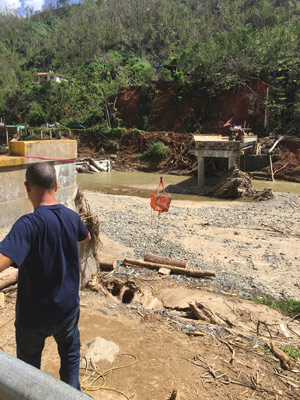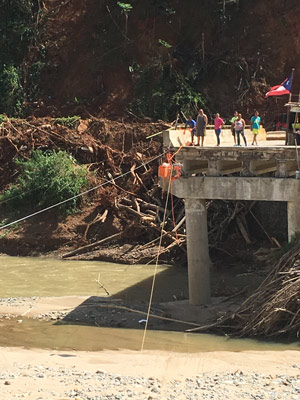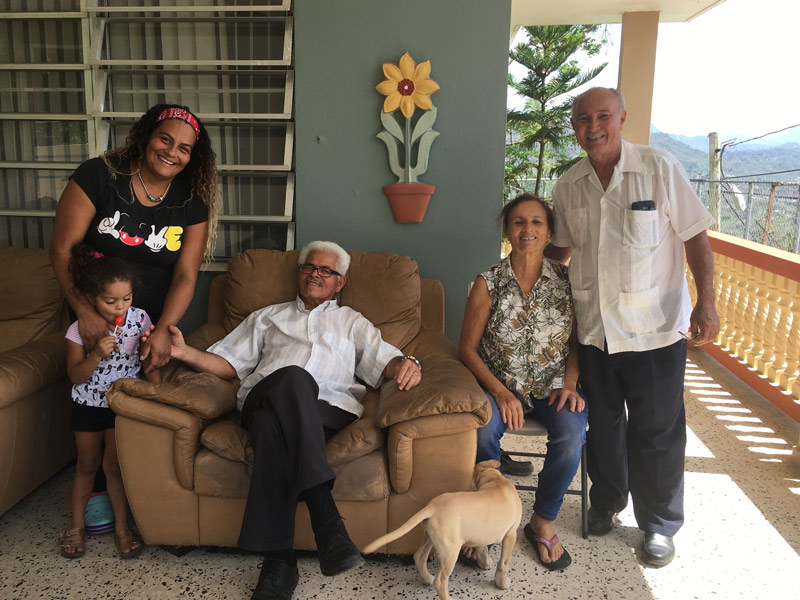The Community of the Forgotten
The Community of the Forgotten
Isolated and abandoned, families in the rural Puerto Rican community of Río Abajo improvised their way out of Maria’s destruction. Four months after the storm, they still have few resources to rely on but themselves.
The residents of Río Abajo call themselves the “Community of the Forgotten.” Tucked away in a mountainous hamlet of Utuado, Puerto Rico, Río Abajo was particularly devastated by Hurricane María. As the category-five hurricane made landfall in the eastern municipality of Yabucoa, the strengthening wind and rain destroyed not only cars, homes, and businesses but also the bridge that connected Río Abajo to the central town of Utuado. Isolated and abandoned, twenty-five families waited for help. As hours turned to days, and days to weeks, the citizens of Río Abajo realized that they were on their own.
With the help from neighbors on the other side, they developed a pulley system across the river to survive their new situation—transporting food to residents and oxygen tanks to the elderly. They eventually strengthened the pulley system enough to carry people back and forth across the river. After two months of this makeshift existence, the U.S. Army Corps of Engineers stripped down the remnants of the bridge and constructed a temporary path for families to cross the river by car. Though far from a permanent solution, it was a significant improvement.
I visited Río Abajo to celebrate Three Kings Day, an island-wide holiday that celebrates the visit of the three wise men to newly born Jesus Christ, on January 6. Amid the church services and distribution of presents to children, community leaders expressed their disgust with their abandonment. Surprisingly, their consternation was directed not just at the federal government but also at their local representatives. They were particularly frustrated that their local mayor, who did not visit them until a month after María’s passing. Both responses from the federal and local government were lacking, yet the betrayal of one’s own local government was more acutely felt.
Today, 121 days after María, the Río Abajo families still have to contend with lack of water and electrical power. They don’t expect to get either soon. As the kids convened around presents and homemade sandwiches when I visited in January, the adults discussed how the hurricane has united them as a family in the absence of resources and aid from external sources. Each and every one of them were forgotten by the authorities, yet they were reminded that among themselves they are not alone.
Elena Céspedes is a senior at Georgetown University from Guaynabo, Puerto Rico, studying Government and History.









